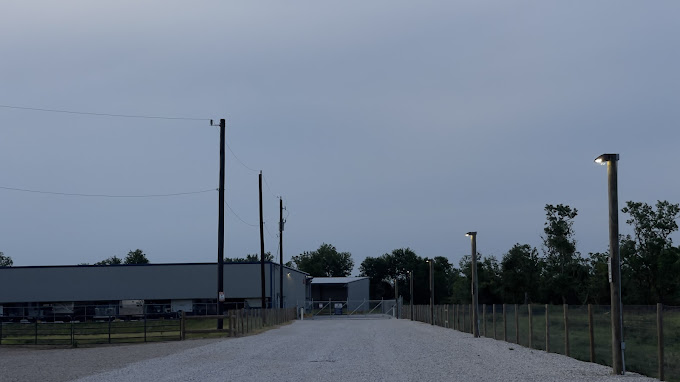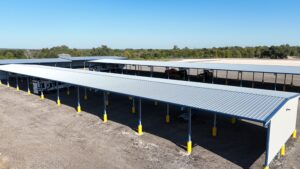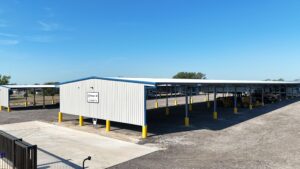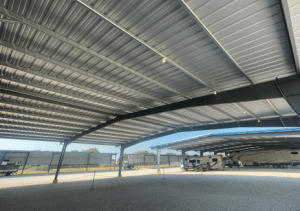Owning an RV brings freedom. It enables you to travel at your whim. The question is, once you’re not traveling, Where do you park the RV?
Many owners are deliberating between bringing the RV home with them or renting space at an RV storage facility. Each option has its pros and cons and essentially it comes down to space, cost and lifestyle. Let us break it down.
Advantages of Storing RV at Home
- Accessibility: If you have the RV parked at your home or in your driveway, you have easy accessibility. You can load, unpack, clean or keep it maintained without leaving home. For those who are traveling frequently, easy access is a big plus.
- Cost: It may seem like an obvious choice to store the RV at home because it’s free and you do not have a rent charge, when compared to renting space at an RV storage facility. If you have the space on your property, you can be saving hundreds a year.
- Flexibility: Keeping your RV at home no longer needs you to work around facility hours and gate access codes. Your RV can leave whenever you want for that weekend adventure.
Disadvantages of Storing Your RV at Home
- Limited Space and HOA Limitations: Not every person has a long driveway or even a yard, or a garage that facilitates RV parking. Even if you do, some neighborhoods and HOAs prohibit larger vehicles where home storage is impossible.
- Exposed to Elements: Unless you have a covered structure, your RV will be exposed to sun, rain, hail and wind. Over time, these elements will deteriorate paint, seals and roofing making expensive repairs especially more vulnerable.
- Security Risks: An RV parked at the side of your house is an easy target for theft or vandalism. Unless you have professional security with gated access and monitoring, your investment is open to theft.
Advantages of Storing in RV Storage
- More Security: A professional facility like Access I-35 offers gated access with controlled entrances, surveillance cameras and walled enclosures. This level of security certainly provides some peace of mind knowing your RV is secure when you’re not using it.
- Protection from Weather: Most facilities offer covered or enclosed storage. Keeping your RV out of the sun, hail and heavy storms will extend its life and help save money on long-term maintenance.
- Free Up Space at Home: When you store your RV at an off-site facility, you take advantage of space in your driveway or yard. Freeing up space on your property will make your property appear cleaner, and you’ll avoid conflicts with your neighbors or HOA.
- Professional Environment: Some Professional RV Storage facilities offer direct boat, trailer or vehicle storage. If you have multiple recreational assets; having an all in one vehicle storage facility can provide convenience.
However, the primary disadvantage of having your RV parked securely in a storage facility is cost as you’ll pay a monthly fee based on the size and type of your storage space (outdoor, covered or enclosed). Many people find it worth the monthly fee just for security and protection, but it is an ongoing cost.
If you have enough space and no HOA limiting your RV storage and you use your RV often or frequently and especially if you have enough time and space to work with, keeping it at home is possibly the best and most simple solution for you.
But if you’ve determined that theft, the weather and freeing up space at home are the most important then RV storage is most likely the best route.
At Access I-35, we focus on safe and convenient RV and vehicle storage facility options to help keep your investment safe, no matter the season. Whether you want outdoor, covered or enclosed storage, we can create a storage solution to meet your needs.
Ready to protect your RV? Take a look at our storage options today!






